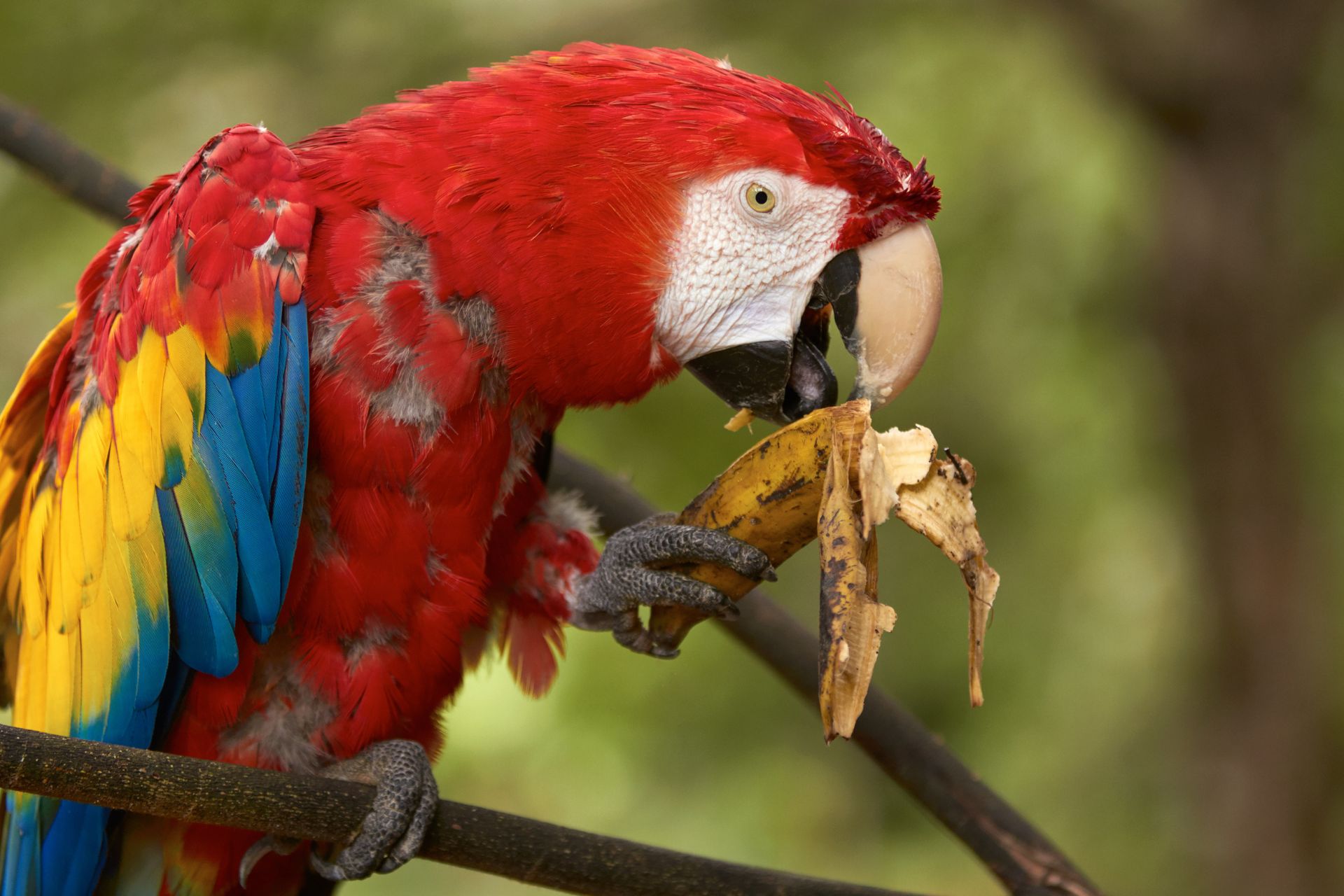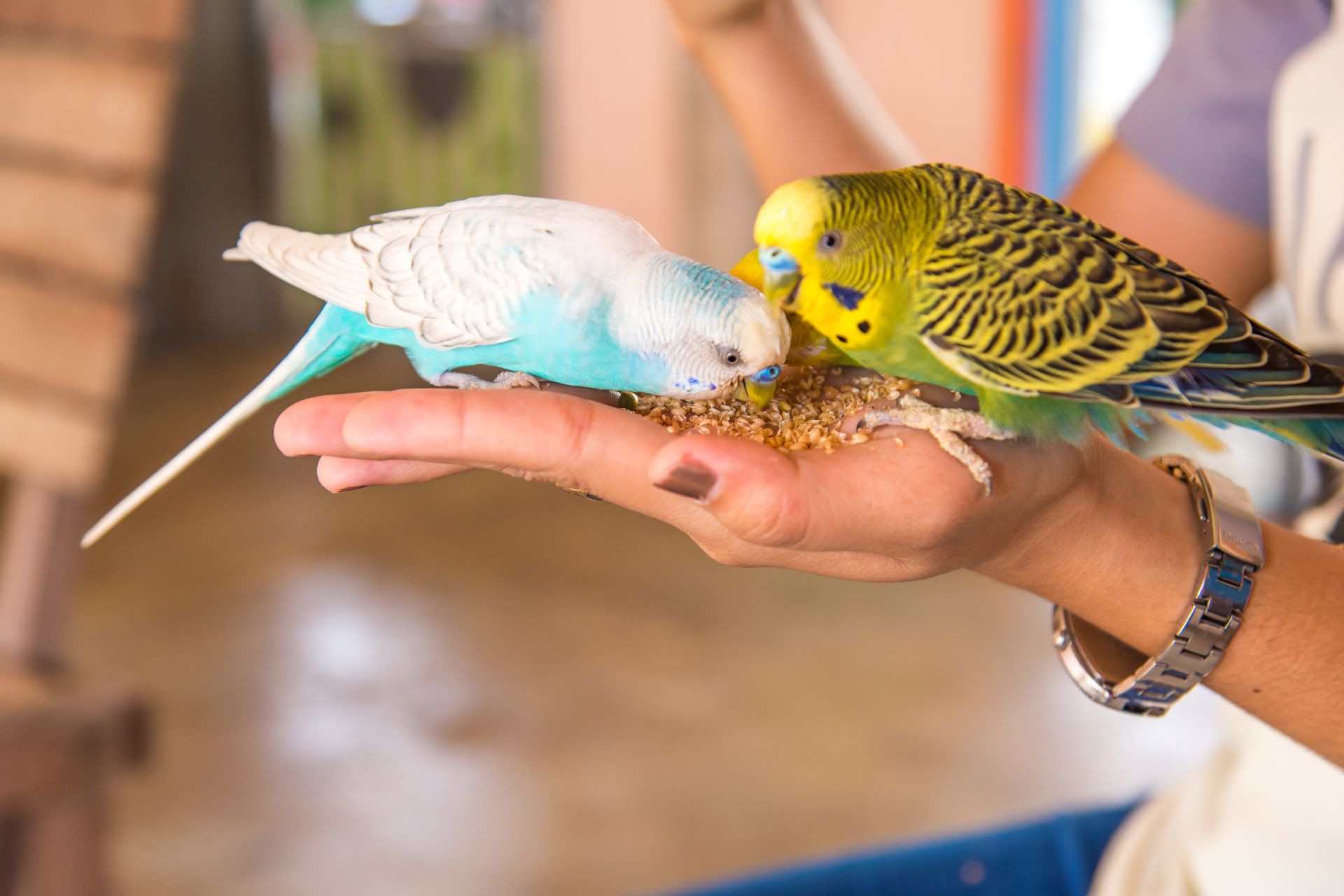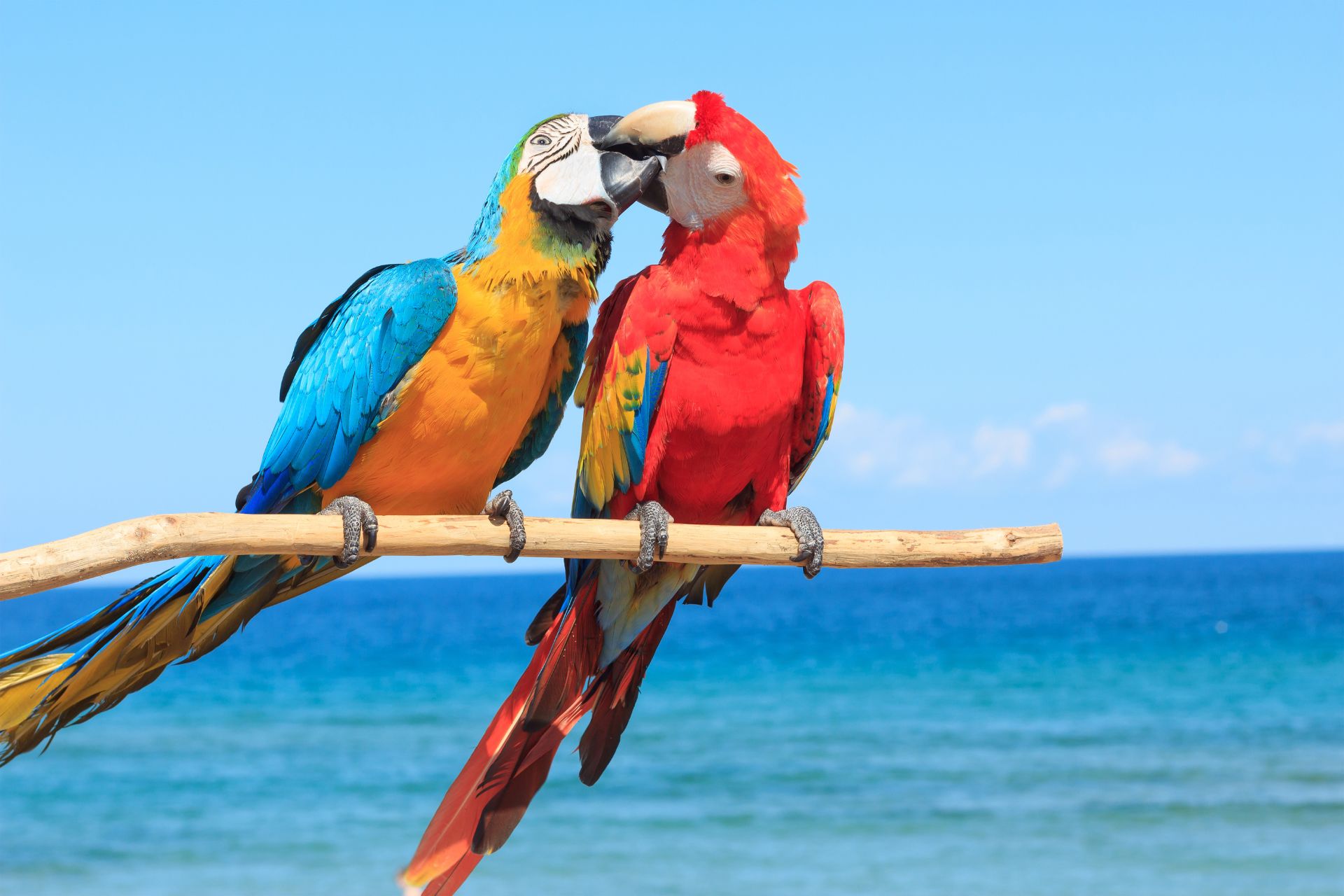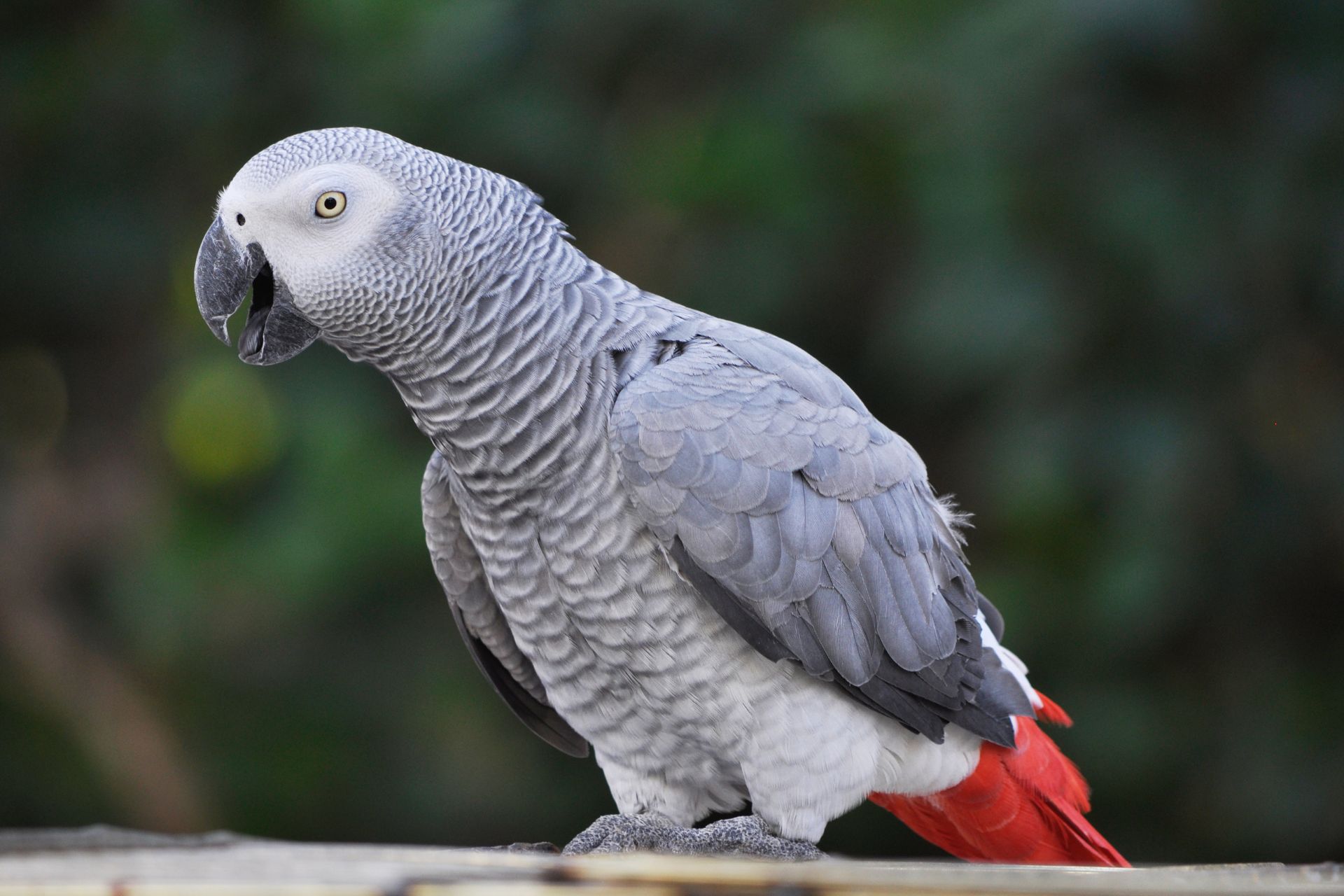What Should Parrots Eat?
Proper nutrition plays a vital role in maintaining the health and longevity of parrots. By understanding their nutritional needs, balancing their diet, providing a variety of foods, and monitoring their hydration, you can ensure they receive the best nutrition possible. Avoiding harmful foods and recognizing signs of nutritional imbalances are essential for maintaining your parrot’s health and happiness. Remember, consulting with professionals is crucial for obtaining the most accurate and up-to-date information on parrot nutrition. A well-rounded diet that includes a variety of foods can help prevent nutritional deficiencies and promote a strong immune system. Let’s delve into the key aspects of parrot nutrition and discover how to optimize their diet.
Contents
- What Should Parrots Eat?
- Introduction
- Understanding the Nutritional Needs of Parrots
- Balancing the Parrot’s Diet
- Feeding Schedule and Portion Control
- Hydration and Water Requirements
- Healthy Snacks and Treats
- Avoiding Harmful Foods and Substances
- Signs of Nutritional Deficiencies and Imbalances
- Consulting a Veterinarian or Avian Nutritionist
- Conclusion
- FAQs (Frequently Asked Questions)
Introduction
Parrots are fascinating and intelligent birds that require a well-balanced and nutritious diet to thrive. Providing your parrot with the right nutrition is essential for their overall health and well-being. In this article, we will explore the best parrot nutrition tips to help you ensure your feathered friend receives optimal nutrition.
Understanding the Nutritional Needs of Parrots
Before we dive into specific dietary recommendations, it’s crucial to understand the essential nutrients that parrots require for their well-being.
Essential Nutrients for Parrots
- Protein: Protein is crucial for building and repairing tissues, promoting healthy feathers, and supporting a strong immune system. Parrots need high-quality protein sources in their diet, such as lean meats, eggs, and legumes.
- Carbohydrates: Carbohydrates provide energy for parrots and should come from sources like whole grains, fruits, and vegetables. These complex carbohydrates offer essential vitamins and minerals.
- Fats: Healthy fats are necessary for parrots’ overall health, providing energy and supporting the absorption of fat-soluble vitamins. Offer unsaturated fats, such as those found in nuts, seeds, and avocados, while limiting saturated fats.
- Vitamins: Parrots require a range of vitamins, including vitamin A, vitamin D, and vitamin E, among others. These vitamins contribute to various bodily functions and are found in fresh fruits, vegetables, and high-quality pellets.
- Minerals: Calcium, phosphorus, and other minerals are crucial for strong bones, beak health, and optimal organ function. Offer a variety of mineral-rich foods, including dark leafy greens, broccoli, and cuttlebones.
- Water: Hydration is vital for parrots’ overall health and proper bodily functions. Ensure a fresh supply of clean water is always available to your feathered companion.
Understanding these essential nutrients allows us to select the right foods to fulfill your parrot’s nutritional requirements.
Dietary Sources of Essential Nutrients
- Seeds and Nuts: Seeds and nuts are a natural part of a parrot’s diet and provide a good source of protein, fats, and vitamins. However, it’s important to offer them in moderation, as they can be high in fat.
- Fruits and Vegetables: Fresh fruits and vegetables are rich in vitamins, minerals, and fiber. Aim to include a variety of colorful produce in your parrot’s diet, such as carrots, bell peppers, apples, and berries.
- Pellets: High-quality pelleted diets specifically formulated for parrots can be an excellent base for their nutrition. Pellets provide a balanced mix of essential nutrients and can be a convenient option.
- Protein-Rich Foods: Lean meats, such as cooked chicken or turkey, offer an additional source of protein for parrots. Eggs, legumes, and tofu can also be included in their diet to provide a diverse protein profile.
By incorporating a combination of these dietary sources, you can provide your parrot with a well-rounded and nutritious diet.
Balancing the Parrot’s Diet
Maintaining a balanced diet for your parrot is essential to ensure they receive all the necessary nutrients. Here are some tips to help you achieve a well-balanced diet for your feathered companion.
Providing a Variety of Foods
Offering a diverse range of foods is crucial to ensure your parrot receives a wide spectrum of nutrients. Rotate different fruits, vegetables, and protein sources to provide variety in taste, texture, and nutritional content. This approach helps prevent dietary monotony and encourages your parrot to explore and enjoy different foods.
Avoiding Excessive Fatty Foods
While fats are essential for parrots, it’s important to limit the intake of excessively fatty foods. Foods like seeds and nuts should be offered in moderation, as an overabundance of fat can lead to obesity and other health issues. Balance their intake by incorporating a variety of nutrient-rich foods into their diet.
Monitoring the Amount of Treats
Treats can be a great way to bond with your parrot and offer occasional indulgences. However, it’s crucial to monitor the quantity and frequency of treats to prevent overconsumption. Too many treats can disrupt the balance of their regular diet, leading to nutritional imbalances.
Supplementing with Vitamins and Minerals
In some cases, additional vitamin and mineral supplements may be necessary to ensure your parrot’s nutritional needs are met. Consult with a veterinarian or avian nutritionist to determine if supplements are required and the appropriate dosage for your parrot’s specific needs.
Feeding Schedule and Portion Control
Establishing a feeding schedule and controlling portion sizes are key elements in maintaining a healthy diet for your parrot.
Establishing a Feeding Schedule
Consistency is essential when it comes to feeding your parrot. Establish a regular feeding schedule that aligns with their natural feeding patterns. Provide fresh food and water at specific times each day to create a routine that your parrot can rely on.
Controlling Portion Sizes
Parrots have different dietary requirements based on their size, age, and activity level. Pay attention to portion sizes and adjust accordingly to prevent underfeeding or overfeeding. Monitoring your parrot’s weight can help you determine if adjustments need to be made.
Avoiding Overfeeding
Overfeeding can lead to obesity and associated health issues in parrots. It’s important to avoid excessive feeding, especially with high-calorie foods. Keep in mind that parrots can be prone to begging for food, so it’s crucial to stick to their appropriate portion sizes.
Hydration and Water Requirements
Proper hydration is vital for parrots’ overall health and well-being. Here’s what you need to know about keeping your parrot hydrated.
Importance of Hydration for Parrots
Water plays a critical role in maintaining the normal functioning of a parrot’s body. It aids in digestion, circulation, temperature regulation, and toxin elimination. Ensure your parrot has access to fresh and clean water at all times.
Providing Fresh and Clean Water
Regularly replace your parrot’s water with fresh, clean water to ensure its quality. Avoid using chlorinated water, as the chlorine can be harmful to parrots. Filtered or bottled water is a safer option. Clean the water dish daily to prevent bacterial growth.
Encouraging Water Consumption
Some parrots may not naturally drink sufficient amounts of water. Encourage hydration by offering water in various ways. You can provide a shallow dish for bathing, use a spray bottle to mist their feathers, or offer water-rich fruits and vegetables, such as cucumber or watermelon.
Healthy Snacks and Treats
Choosing nutritious snacks and treats is an excellent way to add variety to your parrot’s diet while keeping them engaged and satisfied.
Choosing Nutritious Snacks
Opt for healthy snack options that provide additional nutrients and mental stimulation for your parrot. Nutritious snacks can include small portions of fresh fruits, vegetables, and specially formulated parrot treats available commercially.
Homemade Treat Recipes
You can also create homemade treats for your parrot using bird-safe ingredients. For example, you can make birdie muffins using whole wheat flour, pureed fruits, and vegetables. Be sure to avoid ingredients that are toxic to parrots, such as chocolate, caffeine, and avocado.
Avoiding Harmful Foods and Substances
Certain foods and substances can be toxic or harmful to parrots. It’s important to be aware of these and ensure they are not included in their diet.
Toxic Foods for Parrots
Some foods, such as chocolate, caffeine, onions, garlic, and alcohol, can be toxic to parrots. These should be strictly avoided to prevent serious health consequences. Consult a veterinarian or avian nutritionist for a comprehensive list of foods that are toxic to parrots.
Foods to Limit or Avoid
In addition to toxic foods, there are certain foods that should be limited or avoided due to their potential impact on parrots’ health.
Avocado
Avocado contains a substance called persin, which can be toxic to birds. Avoid feeding avocado or any food products containing avocado to your parrot.
Chocolate
Chocolate contains theobromine, which is toxic to parrots and can cause various health problems. Keep all chocolate products away from your parrot.
Caffeine
Caffeine is a stimulant that can have negative effects on parrots’ health. Avoid offering caffeinated beverages like coffee, tea, and energy drinks to your parrot.
Alcohol
Alcohol is toxic to parrots and can cause severe health issues. Ensure that your parrot never has access to alcoholic beverages.
Signs of Nutritional Deficiencies and Imbalances
It’s important to be aware of the signs that indicate potential nutritional deficiencies or imbalances in your parrot’s diet. By recognizing these signs early on, you can take the necessary steps to address them.
Feather Problems
Feather-related issues, such as feather plucking, dull feathers, or excessive feather shedding, can be indicative of nutritional deficiencies. Consult with a veterinarian or avian nutritionist to determine the cause and make appropriate dietary adjustments.
Weight Loss or Gain
Significant weight loss or gain in your parrot may signal an imbalance in their diet. Monitor their weight regularly and consult with a professional if you notice any sudden changes.
Behavioral Changes
Nutritional deficiencies can also affect a parrot’s behavior. Lethargy, irritability, or changes in appetite or eating habits can be potential indicators. Assess your parrot’s overall behavior and consult with an avian expert if you have any concerns.
Consulting a Veterinarian or Avian Nutritionist
If you have any doubts or concerns about your parrot’s nutrition, it’s always best to seek professional advice. A veterinarian or avian nutritionist can provide personalized guidance based on your parrot’s specific needs and help you create a tailored diet plan.
Conclusion
Proper nutrition is paramount for the well-being of your parrot. By understanding their nutritional needs, balancing their diet, providing a variety of foods, and monitoring their hydration, you can ensure they receive the best nutrition possible. Avoiding harmful foods and recognizing signs of nutritional imbalances are essential for maintaining your parrot’s health and happiness. Remember, consulting with professionals is crucial for obtaining the most accurate and up-to-date information on parrot nutrition.
FAQs (Frequently Asked Questions)
1. Can I feed my parrot only seeds? While seeds are a natural part of a parrot’s diet, they are not sufficient on their own. Seeds should be supplemented with a variety of other foods, including fruits, vegetables, and pellets, to ensure your parrot receives a balanced and nutritious diet.
2. How can I encourage my parrot to eat fresh fruits and vegetables? Introduce fresh fruits and vegetables gradually into your parrot’s diet. Offer small pieces alongside their regular food and observe their response. You can also try presenting the fruits and vegetables in different ways, such as skewering them or offering them in foraging toys, to make them more enticing.
3. Can I give my parrot human food as a treat? Some human foods can be given to parrots as occasional treats, but it’s important to ensure that the foods are safe for them to consume. Avoid giving your parrot foods that are high in salt, sugar, or fat, and never give them toxic foods like chocolate or avocado.
4. How often should I change my parrot’s water? You should change your parrot’s water at least once a day to ensure it remains fresh and clean. Additionally, monitor the water throughout the day and replace it if it becomes soiled or contaminated.
5. How can I tell if my parrot is overweight or underweight? Regularly monitoring your parrot’s weight is important to detect any weight changes. You can use a kitchen scale or consult your veterinarian for guidance on how to weigh your parrot accurately. An avian expert can help determine if your parrot’s weight is within a healthy range and provide recommendations for adjustments to their diet if needed.












Join the discussion One Comment